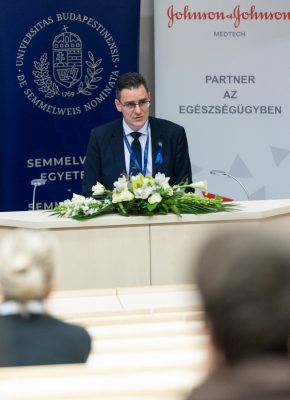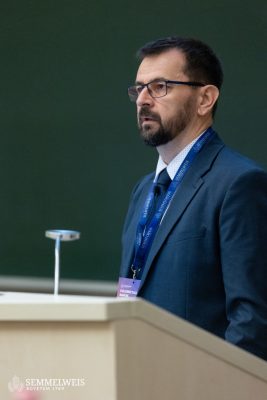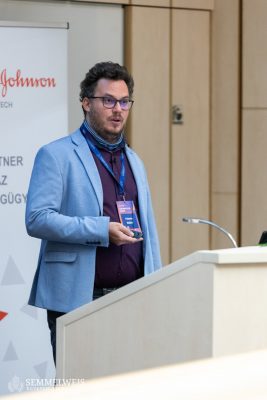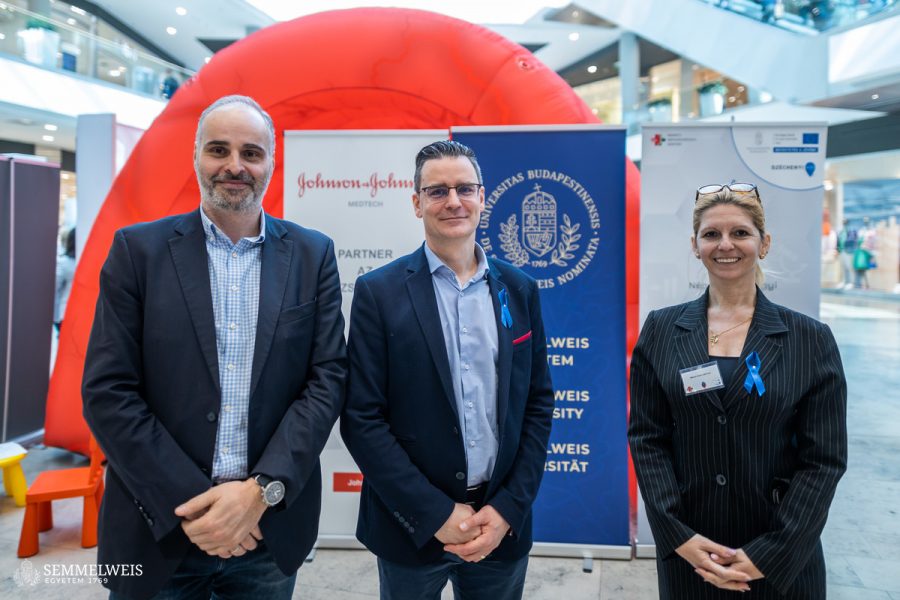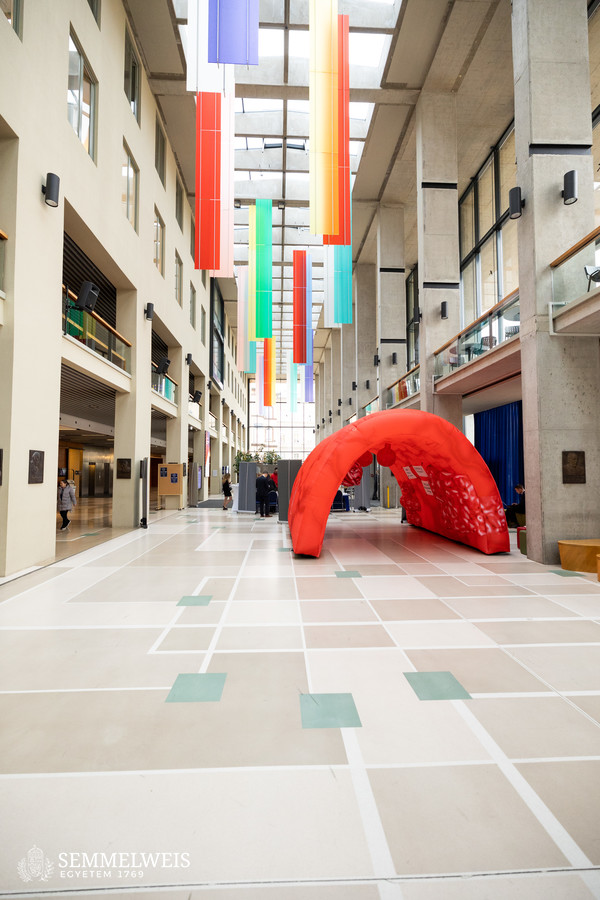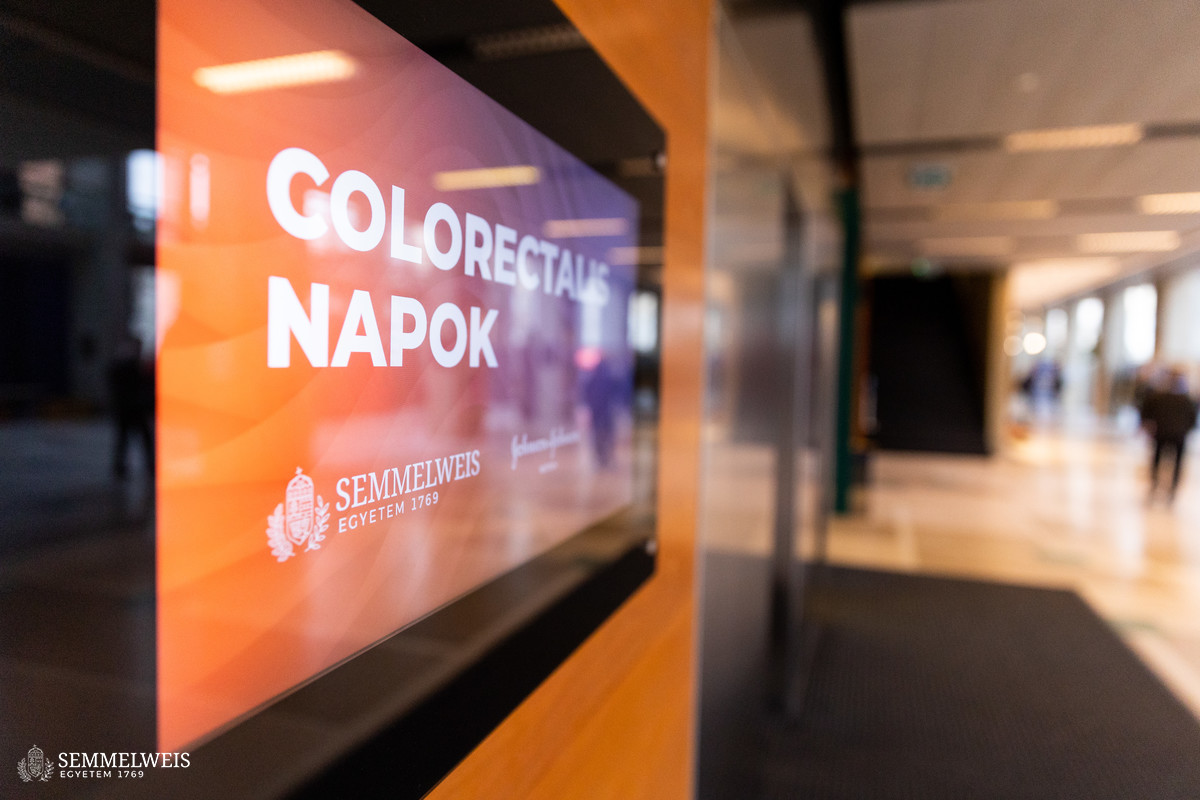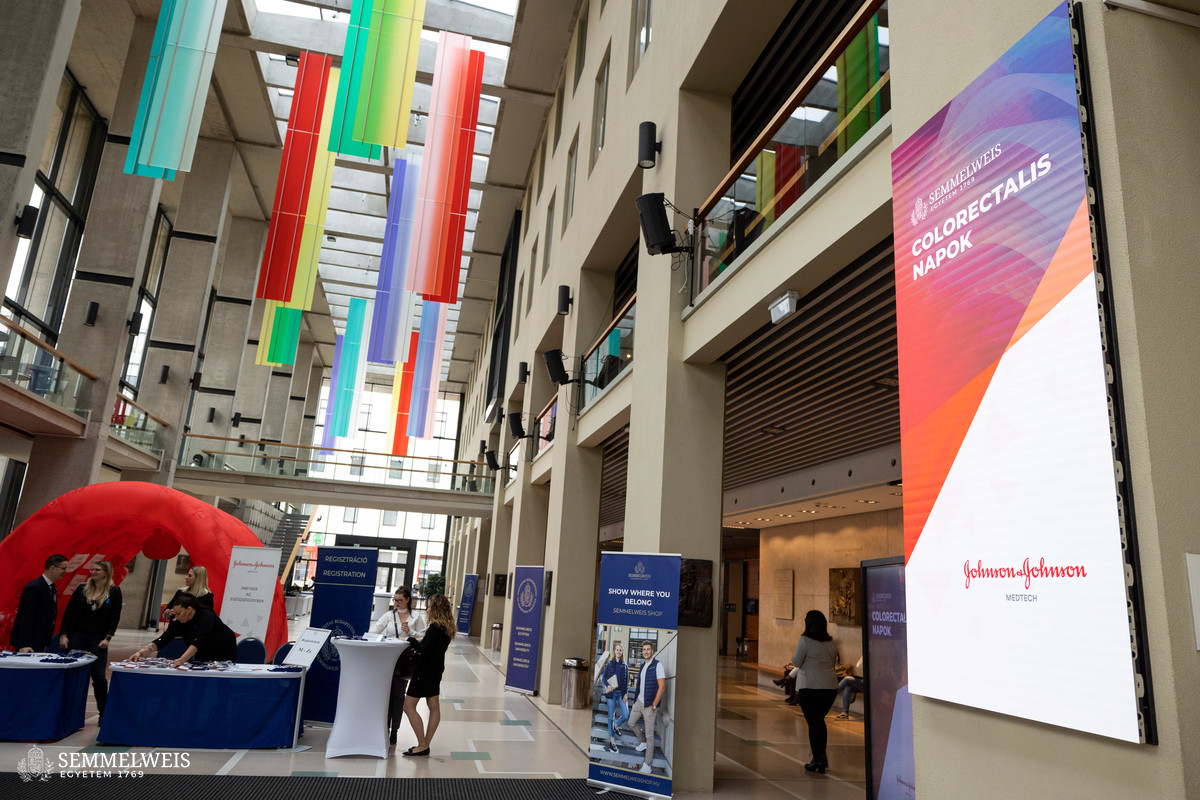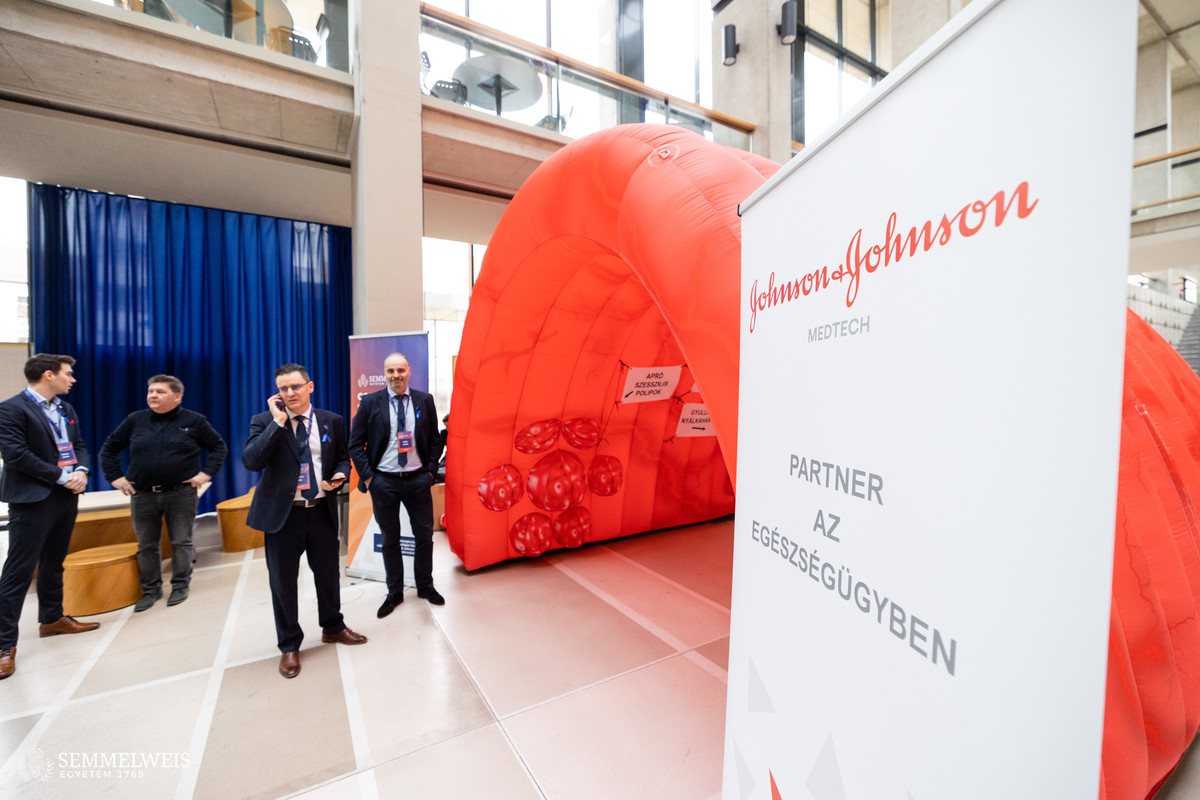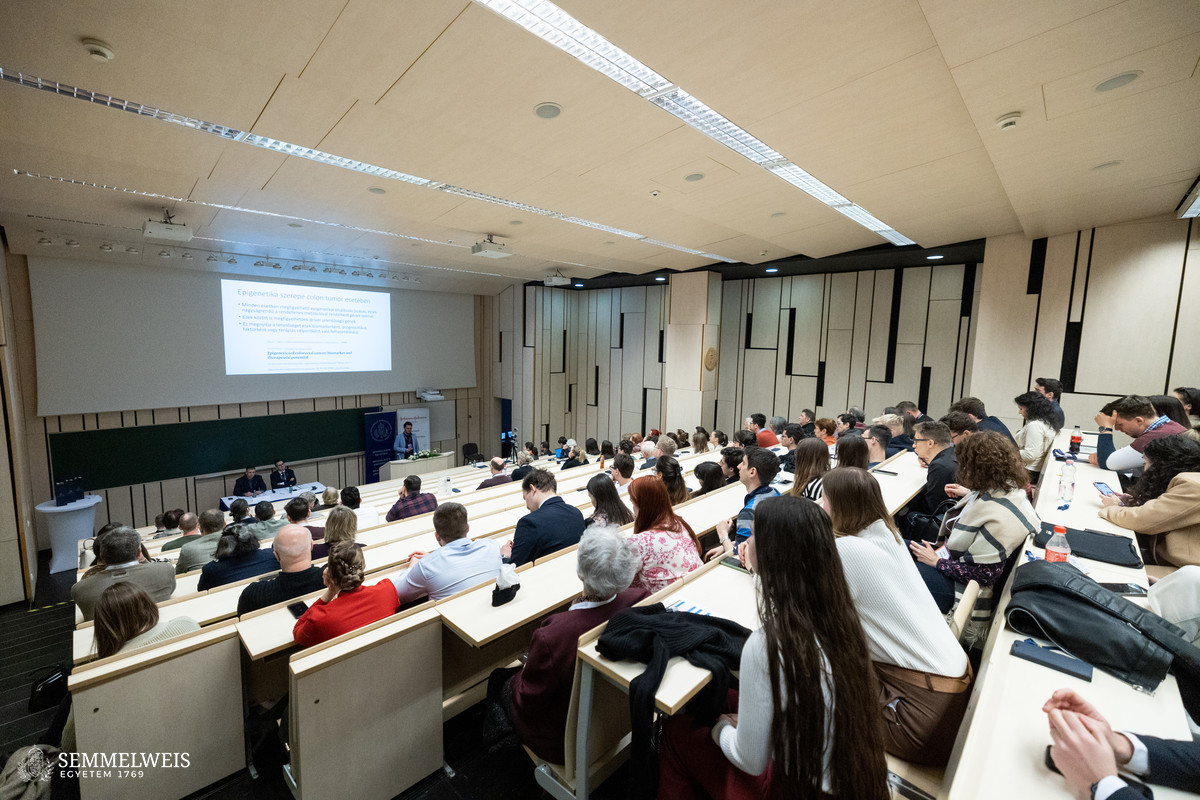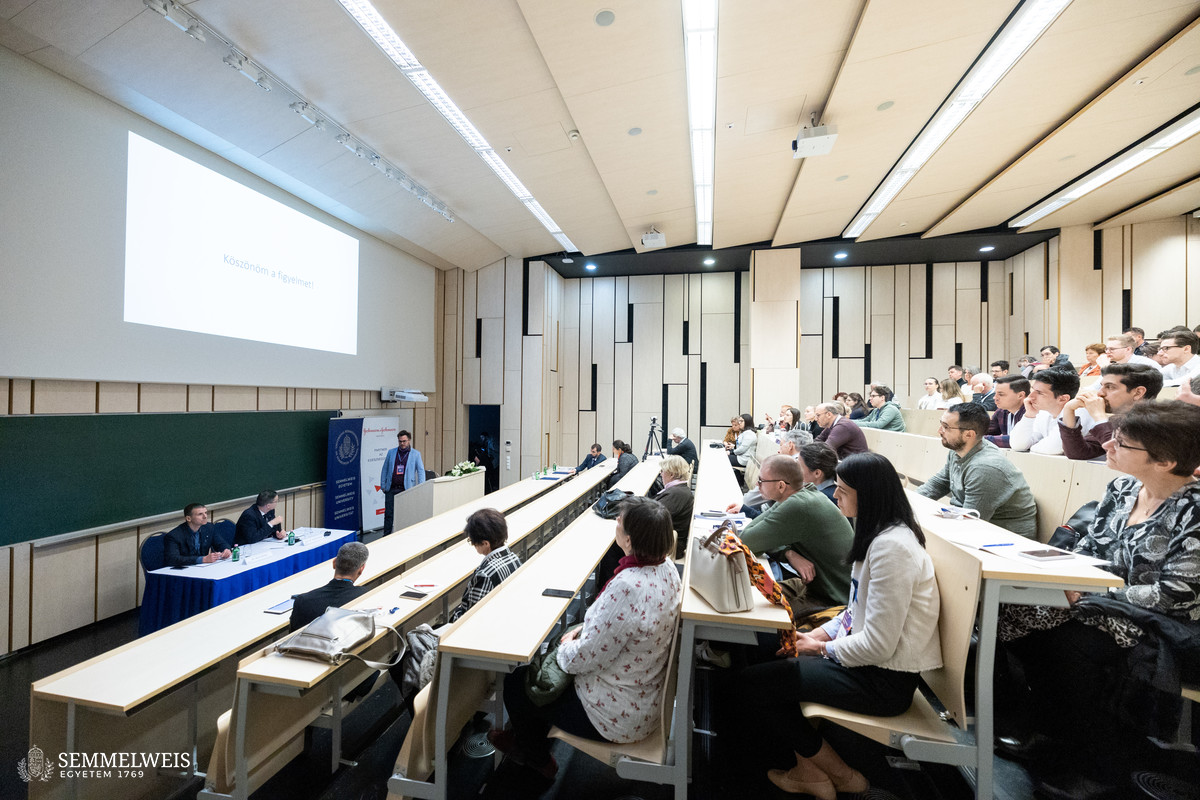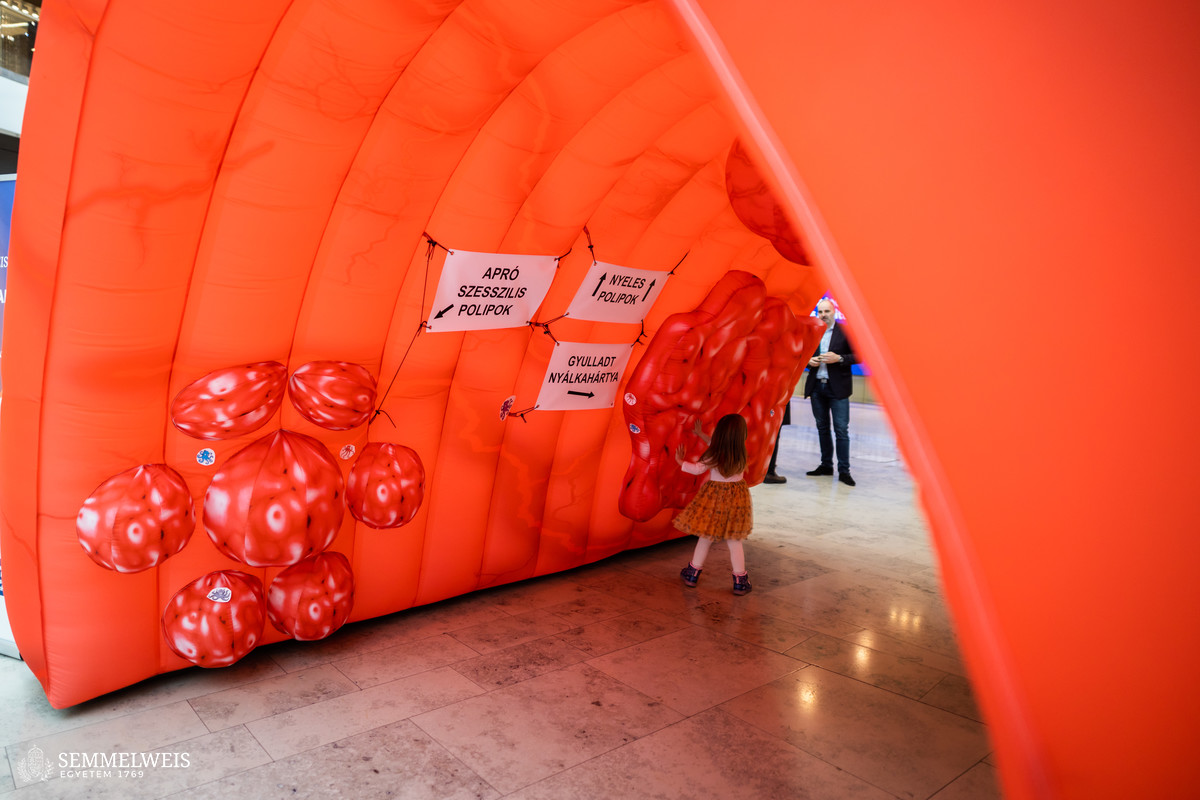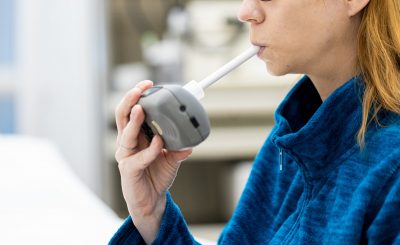The event at EOK was opened by Dr. Attila Szijártó, Director of the Department of Surgery, Transplantation and Gastroenterology. In his welcome speech, he pointed out that in recent years, March has been the worldwide Colorectal Cancer Awareness Month – an initiative that has not been widespread in Hungary so far, but the aim of Semmelweis University’s event is to raise awareness of the disease and the importance of prevention and screening. “In Hungary, the age-standardized incidence of colorectal cancer is 42 per 100,000 people,” he said, adding that in Hungary, colorectal cancer is the second most common cancer killer in men and the third in women. However, the disease is treatable and curable: international figures show that the 5-year survival of a patient with colon cancer can be as high as 60 percent, but the 10 and 20-year survival is around 50 percent,” the director underlined. Dr. Attila Szijártó stressed that the presentations at the Colorectal Days cover the whole spectrum of the disease, treatment and prevention, from genetics to the latest, even robotic, surgical procedures and gastroenterology. “The Department of Surgery, Transplantation and Gastroenterology has also taken on a mission: we want to make the complex gastroenterological care that is already partly established in surgery available to as many patients as possible,” he said. He spoke of the clinic’s commitment to colorectal patients, highlighting the training of stoma therapy nurses and the importance of prevention. He singled out Johnson & Johnson for their support in organizing the event.
Dr. Pál Miheller, Associate Professor, Head of the Gastroenterology Inpatient Care Unit of the Department of Surgery, Transplantation and Gastroenterology, gave a presentation on the importance of colorectal cancer screening. He pointed out that in 2020, the number of new cases of colorectal cancer was close to 1.95 million worldwide, and it is predicted that this number will exceed 3 million by 2040. Between 2007 and 2014, around 80,000 people died of cancer in Hungary, with an incidence of colorectal cancer of nearly 10,000 per year, and the number is increasing year by year.
Speaking about the importance of screening, Dr. Pál Miheller emphasized that the sequence of adenocarcinoma is 10 years in case of the conventional route, while inflammation leads to the development of tumours faster than that, and heredity is also an important factor in case of familial accumulation. The two most important ways of prevention are reduction of risk factors (e.g. physical inactivity, obesity, smoking, alcohol) and screening. “At the age of 50, 30% of the average population has polyps,” he said, adding that the average risk in the European Union is 50-75 years. However, patients are considered at increased risk according to the Amsterdam criteria if they have three relatives with colorectal or other cancers in two consecutive generations, one of whom was under 50 years of age.
The associate professor also presented the clinic’s screening policies and strategies and its oncogenetics working group. “FOBT stool testing every two years reduces mortality by 9-22 percent and also significantly reduces incidence. By performing the test annually, the same figure slips to over 30 percent,” he pointed out. Dr. Pál Miheller referred to the results of the NordIIC (Nordic-European Initiative on Colorectal Cancer) study, which investigated whether unplanned colonoscopy or planned screening yields better results.
It found that neither colorectal cancer risk nor mortality rates were affected by whether someone had a planned screening programme or simply went for a test. The national screening strategy is for people aged 50-75 years to undergo an iFOBT test for faecal blood and then send positive cases for colonoscopy. Dr. Pál Miheller presented the results of the Hungarian screening programme and concluded by summarising that of the many strategies, stool testing and endoscopy seem to be the most useful, as their correct use could save the lives of huge crowds.
Dr. Bálint Fekete, clinical geneticist at the Department of Surgery, Transplantation and Gastroenterology, gave a lecture entitled “Genetics of colorectal carcinoma: acquired and hereditary factors”. In his presentation he spoke about the importance of genetic testing, including germ cell and tissue mutation; the genetics of sporadic colorectal tumours and the so-called polygenic risk score, i.e. the prediction of tumour risk in non-monogenic cases.
Among the environmental impacts that have been suspected or frequently studied are smoking, alcohol, processed foods and red meat, as well as certain additives and bioactive compounds – these can not only cause direct mutations but also affect the expression of the genetic material. Dr. Bálint Fekete spoke about the role of epigenetics, RNA-based biomarkers and the suspicion of tumour syndrome. The most important features of the latter are a positive family history, an unusually early onset, the presence of multiple primary tumours together or sequentially, certain tumour combinations associated with the tumour, and microsatellite instability, which may also point to Lynch syndrome.
“If you suspect that you may have a hereditary cancer syndrome, genetic counselling is highly recommended,” he warned. Dr. Bálint Fekete described the type of genetic defect that plays a role in tumour development: the genetic stock does not pair up properly during a single division, so a loop is formed – this genetic mismatch is attempted to be removed by mismatch repair. If this fails, a mutation remains and starts to replicate, triggering tumour formation. The geneticist also described the familial adenomatous polyposis (FAP) syndrome and the testing method and genetic analysis process based on next-generation sequencing (NGS) technology. He highlighted the potential benefits of genetic results in terms of accurate diagnosis and prognosis, disease-specific prevention plans and family screening.
Afterwards, Dr. Katalin Müllner, Associate Professor, Deputy Head of the Department of Surgery, Transplantation and Gastroenterology, held a lecture on colorectal screening techniques, and Dr. Gergely Kiss, Head of the CT Department of Radiology, spoke about the imaging diagnostics of colon and rectal polyps and early cancers. The afternoon program started with a presentation by Dr. András Kiss, Head of the Institute of Pathology, Forensic and Insurance Medicine, entitled “Pathology and histopathology of colorectal polyps and early cancers”.
Dr. István Hritz, Associate Professor, Head of the Invasive Endoscopy Unit of the Department of Surgery, Transplantation and Gastroenterology, gave a presentation on the interventional gastroenterological treatment of colorectal polyps, while Dr. Balázs Bánky, Associate Professor of the Department of Surgery, Transanal techniques and minimally invasive surgical treatment of colorectal polyps and carcinomas. Dr. Gyöngyvér Szentmártoni, Assistant Professor at the oncology unit of the Department of Internal Medicine and Oncology, held a presentation on the state-of-the-art oncological treatment of malignant tumours of the colon and rectum.
The event continued on 4 March at the Allee Shopping Centre in Budapest. During the prevention day, visitors were informed about the importance of screening and prevention of diseases, and gastroenterologists and surgeons answered questions informally. An inflatable colon tunnel was also on display to raise awareness of colorectal diseases.
Ádám Szabó
Translated by Rita Kónya
Photo: Attila Kovács – Semmelweis University
